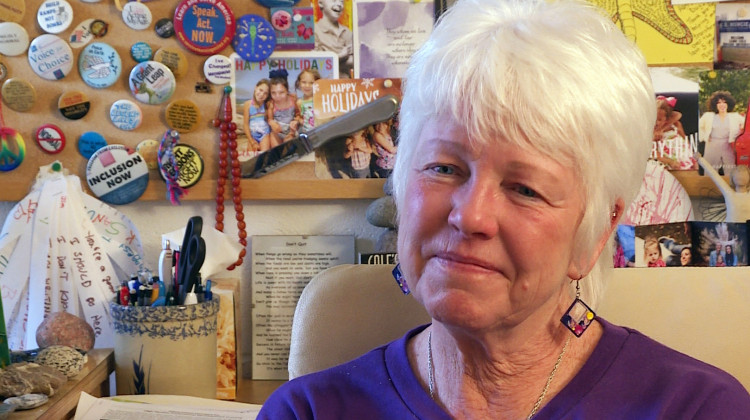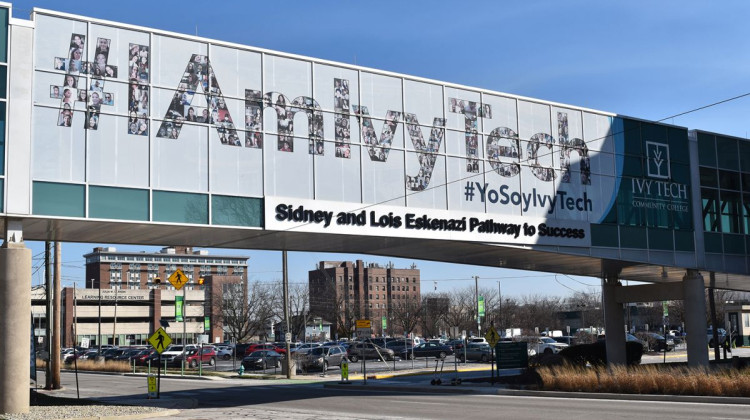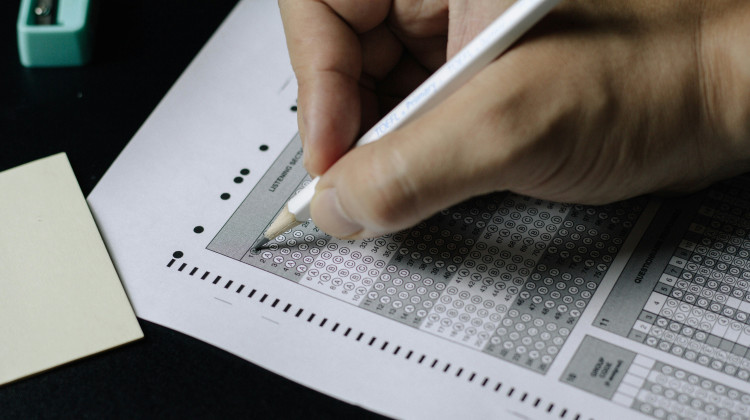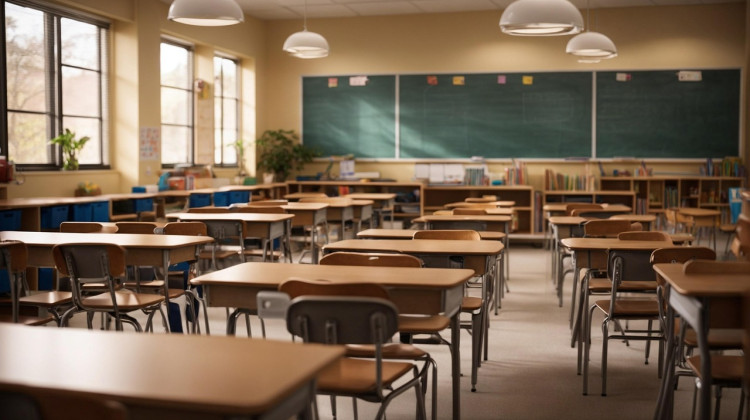
Sandi Cole co-authored the study and is director of the Center on Education and Lifelong Learning.
Jeanie Lindsay/IPB NewsStudents with disabilities perform better on tests when they spend more time in general education classrooms, according to a recent study on student inclusion from Indiana University.
Keeping students with disabilities in general education classroom settings - or not - is an ongoing debate, but study co-author and director of the Center on Education and Lifelong Learning Sandi Cole says the new data offers clear evidence highlighting the significance of where kids learn.
She says it prompts new questions for schools to better serve students with disabilities.
"Where is the child, how do we make sure that the child is included in [general education]? And then how do we make that happen successfully?" Cole says.
Researchers matched students with a "statistical twin" based on their third grade test scores, attendance, and primary disability in order to compare their progress on the ISTEP between third and eighth grade. Cole says students who spent at least 80 percent of their learning time in general education settings made significantly more progress than their statistical twins who didn't.
Cole says it's a significant step to help parents advocate for their child's education, and for policy makers and school leaders to figure out ways to best serve students with disabilities. Indiana had around 174,863 special education students during the 2017-18 school year.
"In reality then, what we're trying to do is get them back in to a place that they may not have needed to be excluded from in the very first place," she says.
Cole acknowledges there are still plenty of questions about how to bring students with disabilities into general classrooms more often and well, but the findings reveal another important element for the state to consider.
"Our general education teachers in Indiana are doing something right. Schools are doing something right," she says. "So now let's find out what is it that they're doing well. What is it that's making it work?"
Cole says the next step is to collaborate with fellow researchers to take a closer look at what happens to students with disabilities in life after high school.
 DONATE
DONATE







 Support WFYI. We can't do it without you.
Support WFYI. We can't do it without you.